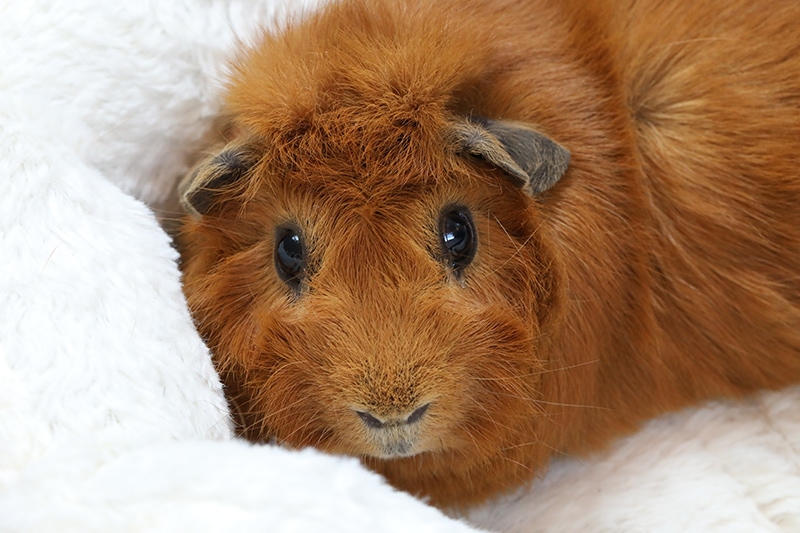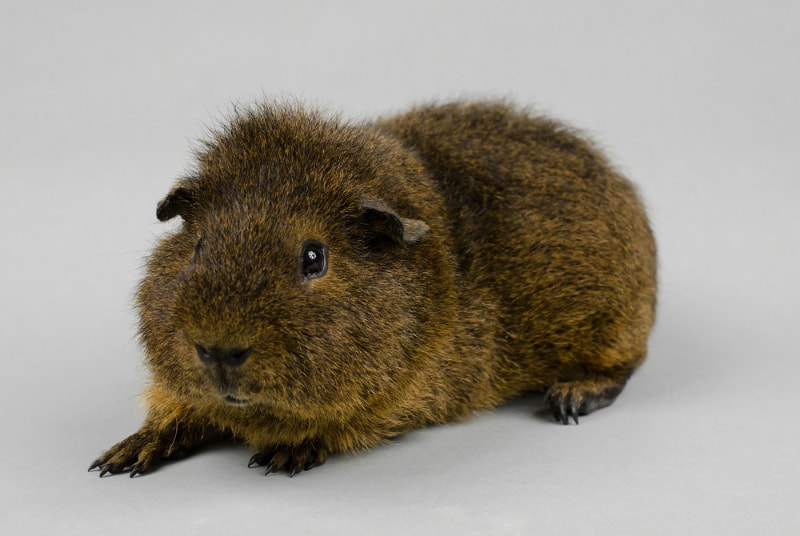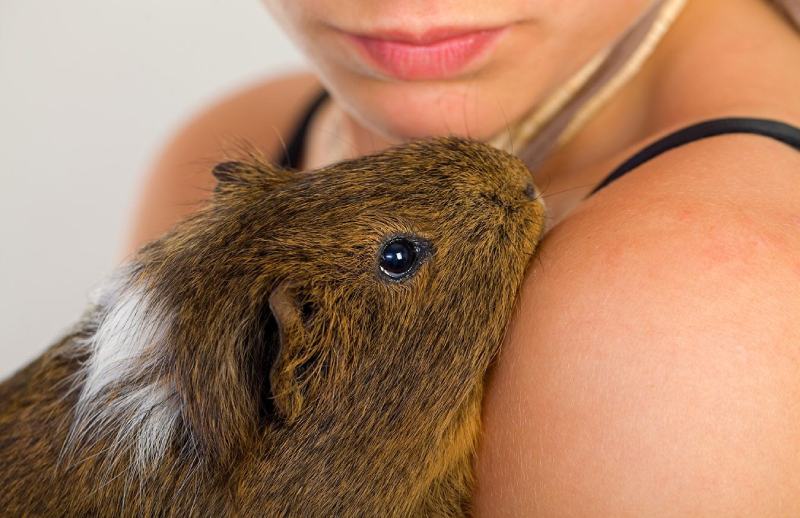Do Guinea Pigs Bite? 7 Reasons They May & Handling Tips
By Jordyn Alger
Updated on
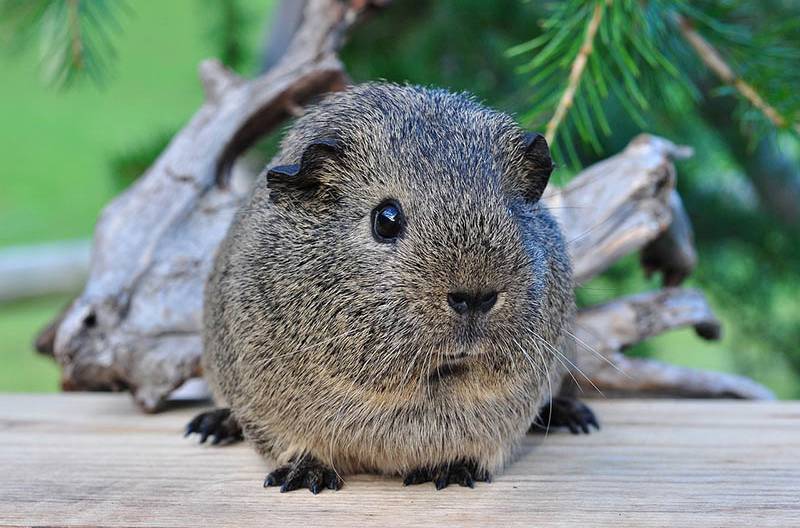
Click to Skip Ahead
Guinea pigs are popular, beloved pets. Many parents give guinea pigs to their children as their first animal companions, and their gentle nature makes them excellent introductory pets. Whether you’re considering a guinea pig for your child or yourself, you may wonder if they bite. While guinea pigs can and do bite, they are not known to bite often. If your guinea pig does bite, it likely indicates something is amiss.
Are Guinea Pigs Friendly?
Guinea pigs are remarkably friendly and gentle, which makes them excellent first-time pets. They are not known to be aggressive, so biting or other intense behaviors are unlikely. While there are always exceptions to the rule, the chances of your guinea pig biting you out of aggression are low.
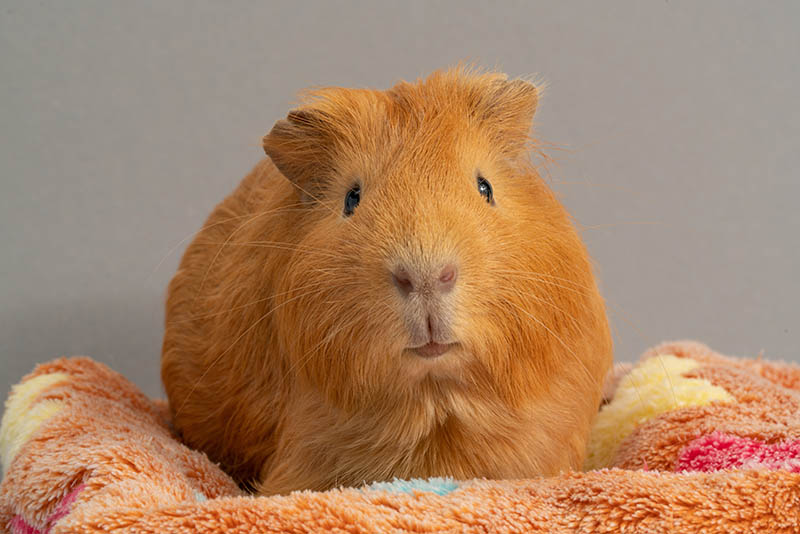
The 7 Reasons Guinea Pigs Might Bite
So, if Guinea pigs are gentle, non-aggressive animals, what may cause them to bite? There are several reasons why a guinea pig may bite, and most of them are related to improper care. If your guinea pig is under emotional distress, physical pain, or another form of discomfort, she may bite you as a result.
1. Your Guinea Pig Is Scared
If your guinea pig is startled, she may bite on instinct. Try to determine the source of your guinea pig’s fear. Once you’ve determined the cause, you can try removing it from your guinea pig’s environment.
2. You’re Not Handling Your Guinea Pig Properly
Improper handling may be the most common cause of guinea pig bites. These delicate creatures are fragile, so they must be handled carefully. If impatient children or careless adults grab a guinea pig too roughly, the guinea pig may bite in response.
This is an easy situation to avoid. Ensure you always pick up your guinea pig with care and gentleness and never try to grab her from where she cannot see you. Alert your guinea pig before picking her up, and there should be no issues.
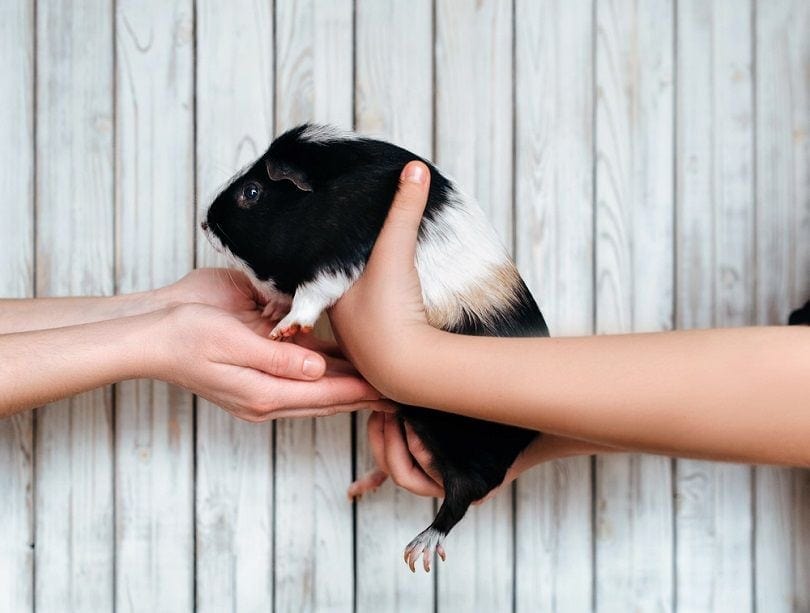
3. Your Guinea Pig Is Poorly Socialized
Socialization is a vital part of development for your guinea pig. If she has not been properly socialized, she may bite more often. Work on socializing your guinea pig by exposing her to new situations in a safe and rewarding way. Treats go a long way to helping your guinea pig overcome hesitations about unfamiliar circumstances.
4. There Is a Medical Issue
If your guinea pig has gone from affectionate and docile to aggressive and sullen at the drop of a hat, it may be an indication that something is amiss. Likely, there is an underlying medical condition that is contributing to the sudden change in behavior.
Watch out for any of these common signs that something is wrong with your guinea pig’s health:
- Grinding her teeth
- Sitting in a hunched position
- Drooling
- Squinting eyes
- Nasal or ocular discharge
- Pained squeaking
- Lethargy or lameness
- Loss of weight
- Breathing rapidly
- Sneezing
- Diarrhea
- Unable to urinate or defecate
- Visible wounds, possibly bleeding
- Redness or sores on feet
- Losing fur
- Seizures
- Bloating abdomen
- Lumps
While not all of these signs are guaranteed to appear in your sick guinea pig, any one of them can be a good indicator that something is wrong. Contact your vet as soon as you notice any of the signs.
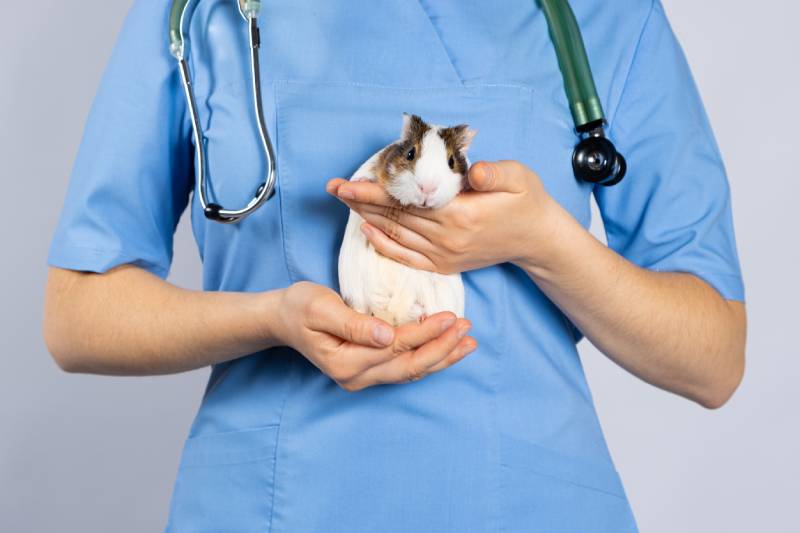
5. Your Guinea Pig Is Hungry
Sometimes, your guinea pig may mistake your fingers for her favorite snacks! The best way to avoid this situation is to feed your guinea pig on a consistent schedule so she does not confuse your fingers with her meal.
6. Your Guinea Pig Is Feeling Protective of Her Young
The urge to protect her young will be strong for a guinea pig who has just given birth. If you try to touch her babies too early, she may bite you to defend them.
7. It Was an Accident
Of course, there’s always the chance that your guinea pig accidentally bit you. This happens most often when playing with your pet, as in the heat of the moment, she may mistake your hand for a toy and chomp on it.
How to Properly Handle a Guinea Pig
If you are a new guinea pig owner and aren’t yet confident in handling your pet, don’t worry; guinea pigs are fairly easy to handle. When picking up a guinea pig, use a calm, gentle voice and avoid chasing your pet around with your hand. This will keep your guinea pig from being afraid of you and biting in response.
To lift your guinea pig, support beneath her rib cage with one hand. With your other hand, scoop the rear. Hold her firmly against your body to provide security.
She may be a bit distressed the first few times you hold your guinea pig. You will want her wrapped in a towel, as she may urinate or defecate. However, she should soon calm down and realize there is nothing to fear. If she does not calm down, adjust how you hold her to ensure you are not gripping or pinching her.
As you continue to hold your guinea pig, she should become more comfortable with the process and will no longer be distressed. In fact, this will help her become better socialized and happier!
Final Thoughts
Guinea pigs are gentle, friendly creatures that do not tend to bite. While there are some exceptions, they can be easily remedied by avoiding or preventing situations that may cause your guinea pig to bite. If you suspect a medical condition is the root of your guinea pig’s behavior, consult your vet right away to determine a diagnosis and find a treatment plan. Guinea pigs are affectionate companions that make excellent pets for children and adults. If you want a kind, docile companion, the guinea pig is the way to go!
Featured Image Credit: Petra, Pixabay

